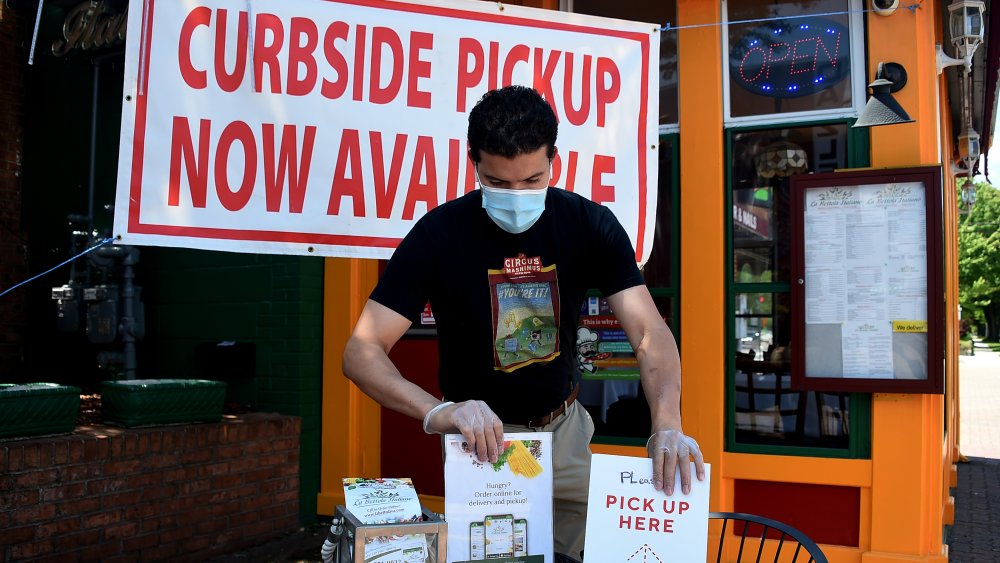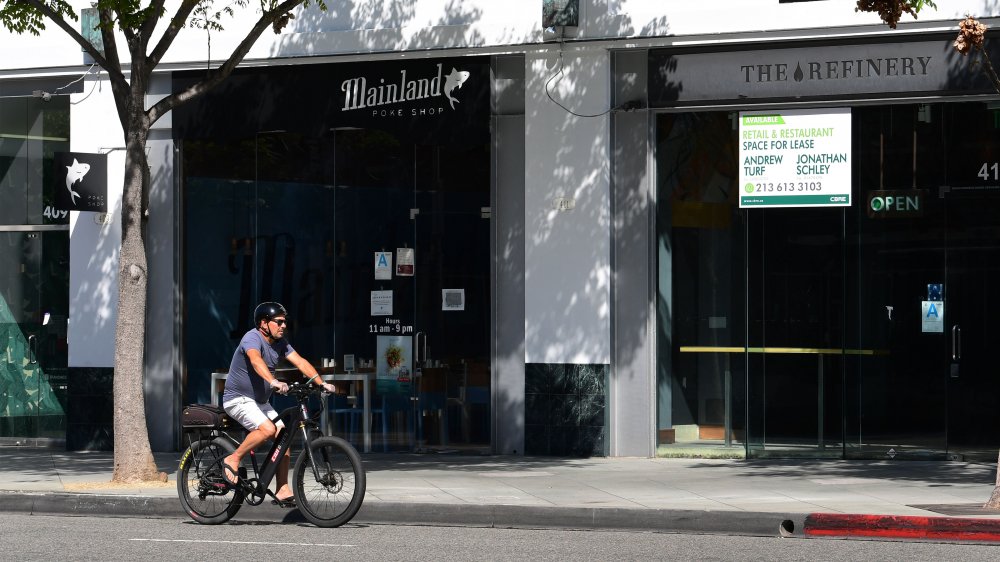Why Buying Gift Cards Doesn't Really Help Restaurants Right Now
When the COVID-19 pandemic first hit the U.S. in March, we were all told that supporting our favorite restaurants by getting takeout or buying gift cards would be some of the best ways to help them stay afloat. A few weeks into shelter-in-place orders, we even thought of getting takeout as killing two birds with one stone: we could still enjoy our favorite restaurants and practice social distancing at the same time. But as restaurant owners were making the pivot to deliveries only, we collectively discovered the downside to deliveries: that as much as 30 percent of takeout revenues were going to Grubhub or Uber Eats, and restaurants were barely breaking even (via The Guardian).
Now we're discovering the downside to the gift card idea too; and like deliveries, they may not be helping restaurants as much as we first thought they would. San Francisco bakery owner Reem Assil tells Eater that turning to gift cards during the early days of the pandemic was a good stopgap because small businesses like hers needed the support of its regulars to survive. But like the delivery model, the gift card idea came with a catch. "There's only so much cash flow you can get from gift cards. We need that money now for the cash flow, but we'll also need it when we reopen our doors at a full capacity and have to rehire folks and get all that up and running," Assil says.
Selling gift cards may create future problems
Back in March, San Francisco restaurant owner Karen Leibowitz told Mother Jones that while buying gift cards could help, they just weren't enough. "Buying gift certificates online can be a way of sending a restaurant a micro-loan and a gesture of good will, but it doesn't reach all small businesses and it doesn't help workers," she said.
And while gift cards might also give small business owners an immediate sense of security — it is cash in the bank after all, and that money can be used to settle bills like rent and payroll — they can also translate into lower revenues when these same restaurants reopen. "I didn't know how long I was going to be closed," Chicago coffee shop owner Valeria Taylor tells Eater. "The way I explained it to people was that the gift cards were going to be helpful — they were an immediate Band-Aid. They were going to help me finish a regular payroll period for now and have something to look forward to in the future."
There is a need to go beyond the gift card model
Selling gift cards can also bring extra stress for Taylor who, like other independent restaurant owners, doesn't know when she will be able to open and start doing business again. "A gift card is almost like a promise that we will be open again, and I don't know if that's going to happen," she says. "We're open for now, but I don't think this is over — and there's no guarantee we're going to survive this if no aid is given to us."
Assil says there is a need to go beyond the gift card model of making money during the pandemic, and she's done that by selling merch and by partnering with a nonprofit that cooks meals and delivers them to people in need. These measures may not make her a lot of extra cash, but the money is enough to keep some staff employed.
Ravi Kapur, owner of Liholiho Yacht Club in San Francisco, tells Eater that while gift cards are a stopgap, and they might present future problems, but they aren't thinking about that right now. "If everybody came in the day we opened and the only guests in the... restaurant were using gift cards, yeah, that'd be an issue. But we're not planning for that to happen," Kapur says.


